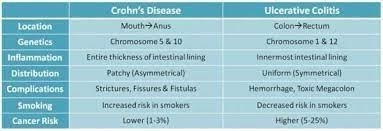In assessing a client at 34 weeks gestation, the nurse notes that she has a slightly elevated total T4 with a slightly enlarged thyroid, a hematocrit of 28% (0.28 volume fraction), a heart rate of 92 beats per minute, and a systolic murmur. Which finding requires follow-up?
Reference Range:
Hematocrit [37% to 47% (0.37 to 0.47 volume fraction)]
Hematocrit of 28% (0.28 volume fraction).
Heart rate of 92 beats per minute.
Systolic murmur.
Elevated thyroid hormone level.
The Correct Answer is A
A) Correct- Hematocrit values below the reference range during pregnancy could indicate anemia, which requires further evaluation and intervention. The other findings can be attributed to normal physiological changes during pregnancy (elevated total T4, heart rate increase) or can be common findings (systolic murmur).
B) Incorrect - A heart rate of 92 beats per minute is within the normal range for pregnancy due to increased blood volume and hormonal changes.
C) Incorrect - A systolic murmur can be a common finding during pregnancy due to increased cardiac output.
D) Incorrect - An elevated total T4 can be a normal finding during pregnancy due to hormonal changes.
Nursing Test Bank
Naxlex Comprehensive Predictor Exams
Related Questions
Correct Answer is B
Explanation
A) Incorrect- Anal abscesses and fistulas are more commonly associated with Crohn's disease than with ulcerative colitis. Crohn's disease can involve the entire thickness of the bowel wall and create tunnels or connections (fistulas) between different parts of the gastrointestinal tract.
B) Correct- Rectal bleeding is a common symptom of ulcerative colitis, as the inflamed tissue can bleed easily.
C) Incorrect- Constipation is not a common characteristic of Crohn's disease. In fact, both ulcerative colitis and Crohn's disease can lead to a range of bowel habits, including diarrhea and constipation, depending on the extent and location of inflammation.
D) Incorrect- Both ulcerative colitis and Crohn's disease are inflammatory bowel diseases (IBD) that involve chronic inflammation of the gastrointestinal tract. Ulcerative colitis primarily affects the colon and rectum, causing continuous areas of inflammation and ulceration. Crohn's disease can affect any part of the gastrointestinal tract, from the mouth to the anus. It often involves patches of inflammation with healthy tissue in between, and it can affect different layers of the bowel wall.

Correct Answer is ["200"]
Explanation
To calculate the mL/hour for the erythromycin infusion, we first need to determine the infusion rate in mL/minute.
The infusion is to be completed over 30 minutes, which is equal to 0.5 hours. Next, we divide the total volume (100 mL) by the total time (0.5 hours) to get the infusion rate in mL/hour:
Infusion rate = Total volume / Total time
Infusion rate = 100 mL / 0.5 hours Infusion rate = 200 mL/hour
Therefore, the nurse should program the infusion pump to deliver the erythromycin infusion at a rate of 200 mL/hour.
Whether you are a student looking to ace your exams or a practicing nurse seeking to enhance your expertise , our nursing education contents will empower you with the confidence and competence to make a difference in the lives of patients and become a respected leader in the healthcare field.
Visit Naxlex, invest in your future and unlock endless possibilities with our unparalleled nursing education contents today
Report Wrong Answer on the Current Question
Do you disagree with the answer? If yes, what is your expected answer? Explain.
Kindly be descriptive with the issue you are facing.
